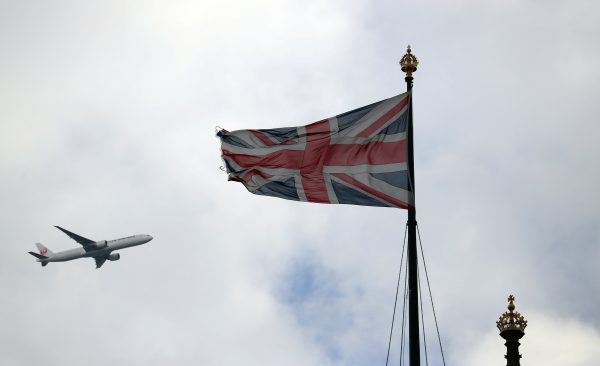The most urgent matter on Truss’ plate is the European energy crisis, which will hit Britain particularly hard. The only feasible way to shield citizens from the impact of price spikes will require an enormous fiscal commitment — well over £100 billion (US$115.9 billion), at a time when the national debt has spiked to over 100 per cent of GDP — and rationing may still be required. A shock of this magnitude, following on from the ongoing difficulties of the COVID-19 pandemic, would be difficult enough for a healthy economy to absorb, and the British economy is far from healthy.
As almost all economic analyses show, the decision to tear up its membership card for the European Union has cost the United Kingdom dearly. Despite the promises that Brexit would enable Britain to cast off from European shores and sail the seas of international commerce as confidently as it did in the days of Empire, the country is less open to trade and investment than it was before the referendum. The inward economic turn has weighed down economic growth. The independent Office for Budget Responsibility reckons that as a result of Brexit, imports and exports will be 15 per cent lower in the long run, and productivity 4 per cent lower.
Truss was a Remainer, but like Theresa May and, to some extent, Boris Johnson before her, she has taken to Brexit with the zealotry of a convert. During the leadership election she made loud noises about taking a tough line on Northern Ireland. Any substantial economic rapprochement with Brussels seems unlikely under Truss, especially with a Tory backbench that is considerably more Eurosceptic than the voting public.
Trying to defy economic gravity, the UK is likely to turn increasingly to Asia as a solution to the economic problems wrought by Brexit. Matters are complicated there, too. China–UK relations have emerged as a frontline issue in British politics in a way that they have not been since the handover of Hong Kong. Truss and her rival Rishi Sunak made sure to stress their hawkish credentials to the Tory membership during the election race, and Truss seems likely to continue to toughen London’s position on Xinjiang, Hong Kong and Taiwan.
As Rana Mitter wrote last week, Britain’s increasingly assertive posture towards Beijing means that ‘it will not seek to come to any sort of economic agreement with China’ regardless of the attractions of closer economic relations with the world’s biggest trading nation. Instead, any ‘pivot’ towards Asia is likely to focus on partners like Japan, ASEAN and India. As Alan Winters points out in the first of our lead articles this week, however, the likely impact of bilateral trade agreements on the British economy is very small indeed. Evidence suggests a marginal benefit from the agreement the United Kingdom signed with Japan in 2020, and while a deal with India is likely to increase bilateral trade, ‘around 40 per cent of that increase arises from trade diversion — the reduction of UK trade with other partners’.
A more tempting target may be UK membership in the Comprehensive and Progressive Agreement for Trans-Pacific Partnership (CPTPP), the region-spanning megadeal that includes a number of key Asian partners and — pointedly — excludes China (at least for now). British membership would allow London to deepen economic ties in Asia while maintaining its distance from Beijing. On a purely economic front, joining the CPTPP would come nowhere near healing the self-inflicted injury to the UK’s trade following Brexit, but it would be a modest start. But as Winters argues, while there are possibilities, Britain lacks a coherent trade strategy to enable it to grasp them. Despite Truss’s background as International Trade Secretary in the Johnson government, she barely mentioned the subject during the leadership race.
Hawkishness towards China complicates UK problems considerably. Whatever the nature of Britain’s political relations with Beijing, it is impossible to wish away the fact that the Chinese economy remains the centre of gravity of the Asian regional economy at large. Any strategy for a renewed economic engagement with Asia that leaves China out of the mix is the equivalent of a production of Hamlet without the Prince of Denmark. It is possible, though frankly unlikely, that Truss will find a way to insulate the economic relationship from the deteriorating political relationship. This will become virtually impossible if Truss follows through with her promise to officially label China a ‘threat’ to Britain, on the same level as Russia.
What is worrying, as Ken Heydon argues in our second lead article this week, is the potential for general ‘strategic disquiet’ needlessly escalating into conflict, a possibility that will become more likely as long as the UK’s strategic aims in general remain poorly defined.
The strategic policy drift post-Brexit reflects a broader sense of aimlessness in a country that is still figuring out its place on the world stage with neither Empire nor Europe to buttress its claim to global power status. A gargantuan task at any time, let alone in the middle of a pandemic, a war in Europe, an energy crisis and the end of the second Elizabethan era.
The EAF Editorial Board is located in the Crawford School of Public Policy, College of Asia and the Pacific, The Australian National University.

